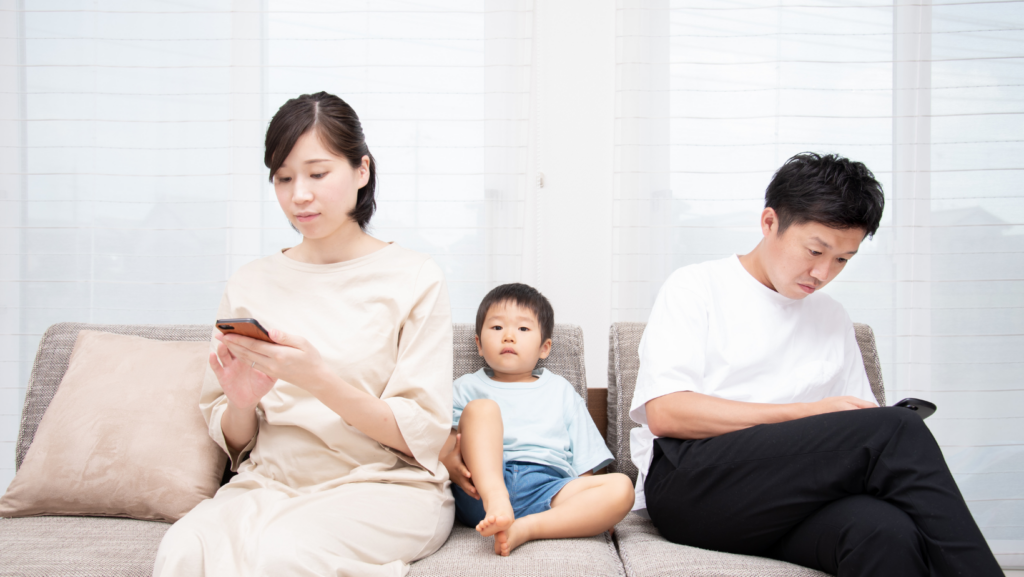In the diverse world of parenting styles, one method that often goes unnoticed is uninvolved parenting. It’s a term that may sound contradictory, but it’s an unfortunate reality for some children. This style is characterized by a lack of responsiveness to a child’s needs, and minimal communication.
While it may be easy to label uninvolved parenting as simply ‘neglectful’, it’s important to delve deeper. Understanding the reasons behind this parenting approach can shed light on its impact on children’s emotional and psychological development.
Uninvolved Parenting
Unraveling the concept of uninvolved parenting necessitates a detailed exploration. Three main aspects will be covered in this section: defining uninvolved parenting, and identifying the features that distinguish uninvolved parents.
Uninvolved parenting, sometimes referred to as neglectful parenting, denotes a parenting style marked by low levels of both warmth and control. Parents engaging in this form of parenting often exhibit a lack of responsiveness to their child’s needs and show minimal emotional involvement. More than a deliberate strategy, uninvolved parenting generally results from a parent’s lack of awareness about beneficial parenting strategies or their incapacity to provide the necessary care and guidance.
Characteristics of Uninvolved Parents

Uninvolved parents typically exhibit certain behaviors that set them apart. For starters, a lack of interest and involvement in their child’s day-to-day life is a clear sign. Uninvolved parents often fail to show up for important events or neglect to assist with homework, providing little encouragement or guidance in educational matters.
Another characteristic often observed is the lack of communication. It’s not uncommon for these parents to hold back information, avoid initiating meaningful conversations, or fail to engage in active listening when their child speaks.
Thirdly, uninvolved parents frequently display indifference towards their child’s emotional needs. They don’t usually console their child when they’re upset, offer celebration when they achieve something, or provide support during difficult times. This indifference might extend to basic needs as well, with uninvolved parents neglecting to provide adequate food, clothing, or safe housing.
The Background and Causes of Uninvolved Parenting
Digging deeper into the roots of uninvolved parenting, the pivotal elements that constitute this parenting style are several and complex. They evolve from a mix of personal, social, and cultural factors, each having a unique role in the formation and maintenance of this type of parenting.

Uninvolved parenting doesn’t arise in a vacuum. Here, we pinpoint a set of factors that can directly and indirectly lead to uninvolved parenting.
- Parent’s personal history: Parents who’ve experienced neglect or abuse in their childhood can, in some cases, perpetuate the cycle of uninvolved parenting.
- Mental health issues: Parents battling mental health problems such as depression and schizophrenia might find it harder to engage in their child’s life.
- Lack of knowledge about child development: Parents who aren’t conscious of their child’s developmental needs can inadvertently adopt an uninvolved parenting approach.
- Substance abuse: Parents using illicit substances often struggle to provide consistent, nurturing care to their children.
- Economic challenges: Parents grappling with financial hardship might prioritize their own survival over their child’s emotional needs.
How Culture and Society Influence Uninvolved Parenting
Culture and society, being crucial for understanding contexts, markedly influence parenting styles, including uninvolved parenting.
Certain cultures, for instance, might encourage less emotional expression between parents and children. Additionally, the stress of living in a society that embraces long working hours or lacks substantial social support systems can push parents towards uninvolved practices, causing them to neglect the emotional and physical needs of their children.
Need To Know About Uninvolved Parenting
Uninvolved parenting isn’t just about the lack of warmth or control. It’s a complex issue rooted in factors such as a parent’s own history, mental health, understanding of child development, and external influences like societal norms and culture. Addressing this style of parenting requires a comprehensive approach. The ultimate goal is to foster healthier, more responsive parenting practices. By doing so, we can help ensure that children grow up in nurturing environments that promote their emotional and psychological well-being.

